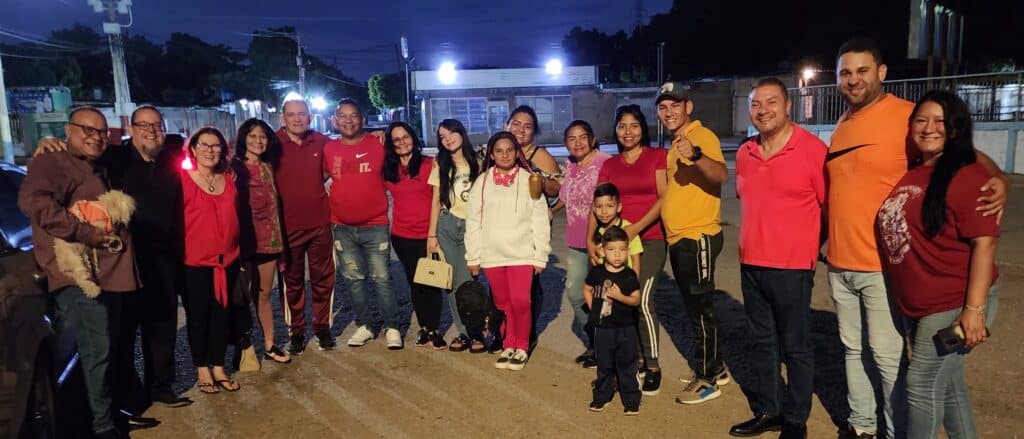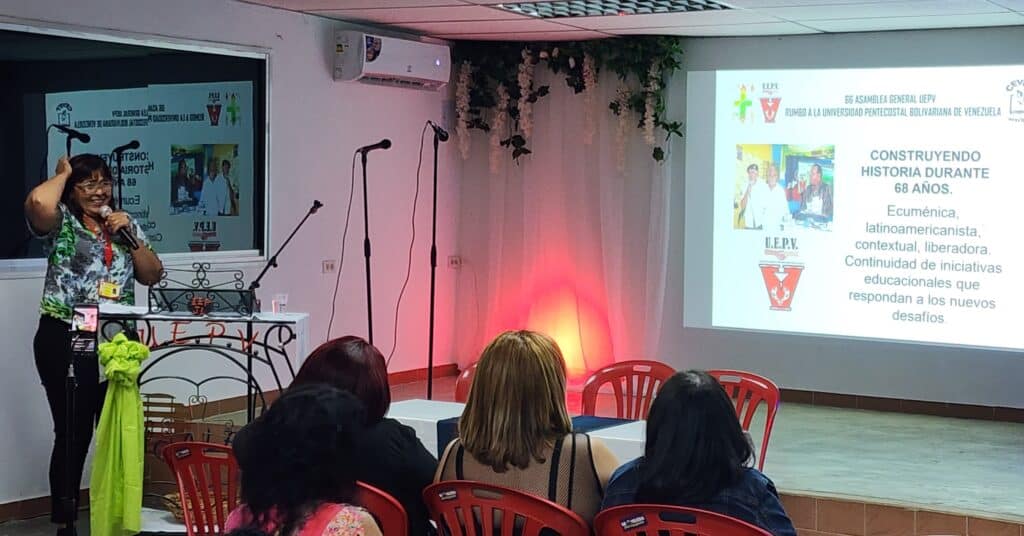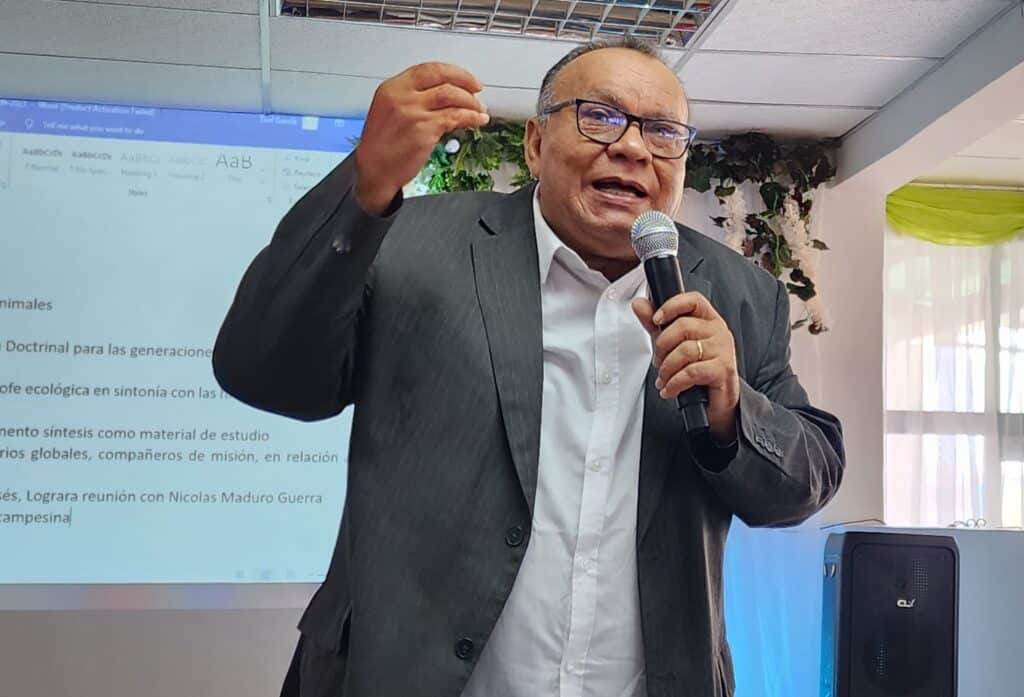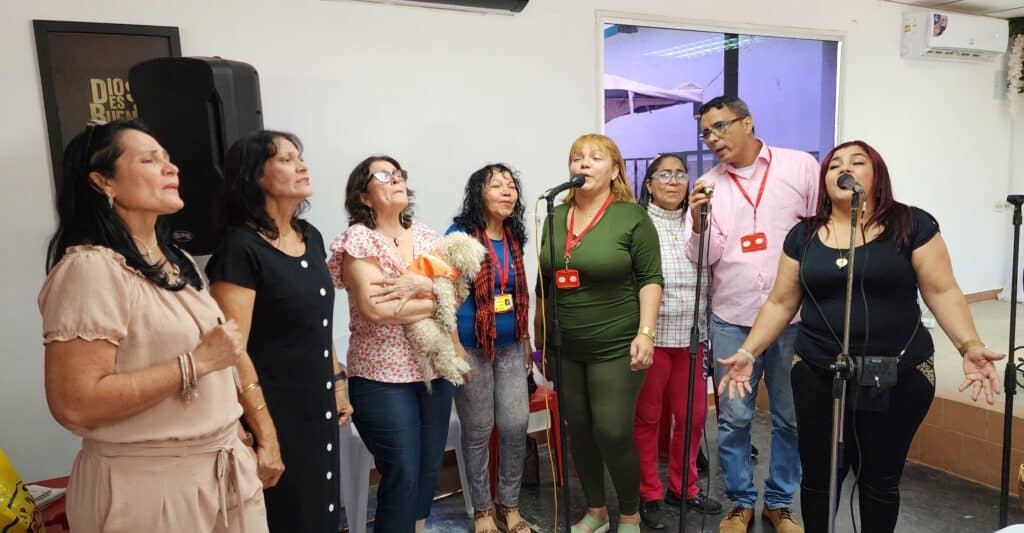Sowing the Seeds of Love in Venezuela

The Evangelical Pentecostal Union of Venezuela (UEPV) held its General Assembly from September 21 to 24, 2023, at the Bolivarian Pentecostal Center (also known as Bender Center) in Lara State, Venezuela. At this Assembly, Bishops and Reverends from all the congregations and regions of the denomination engaged in critical reflection on issues such as imperialism, climate change, the need to continue worship and liberating practice of the Gospel, as well as what has been called the “Pentecostal All Hands to Sow Program.”

Inspired by the Bible, theology, and recommendations received by former Global Ministries’ Mission Co-worker and theologian, Carmelo Álvarez, and by sociologist and political activist Carlos Lanz, UEPV stressed how a global food crisis has been the result of a capitalist production regime in search of maximum profit, establishing food as a business, and not for meeting the needs of the entire population. In that sense, they shared that our world is living into a “climate catastrophe” due to excessive production with high pollution that has, in turn, generated a complex climate with solid and prolonged droughts. The national economic model also depends on oil income, with the abandonment of the countryside and the population concentrating in urban areas with rampant consumerism.

As an invitation to sow relevant spirituality and respect for our Earth, the Reverend Gamaliel Lugo, UEPV’s General Bishop, called the church to live under social awareness and commitment through the practice of reverence to the land and natural resources. UEPV called for All Hands to Sow amid the climate catastrophe. UEPV has understood its ecological mission on the Care of Creation by promoting productive patios, community pots, solidarity enterprise programs, and the affirmation and defense of agriculture in the face of polluting industrial voracity. The call for all Pentecostal hands to plant includes indigenous development guided by theological and pastoral training for a new ecclesiology at the UEPV. They have created an educational model where every temple in rural and urban areas produces communal crops for the neighborhood and engages in a new ecological awareness and practice.

As with every Pentecostal church in the continent, UEPV also praised God in a very lively, profound, and widespread way during the Assembly. They sang their “coritos” (worship songs composed by single, cheerful, and repetitive stanzas), heard the preaching of God’s Word, and received new leadership in their regions.
UEPV is a powerful voice resonating with love and beauty from the margins during times like these. They challenge the whole wide church to embrace the love of the Father, to follow the example of Jesus Christ, and to trust in the power of the Holy Spirit, signs of that transformation and conversion so necessary in these days that can overwhelm and despair.
